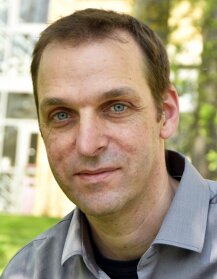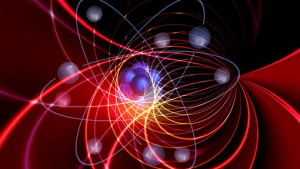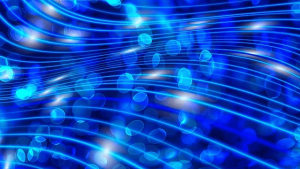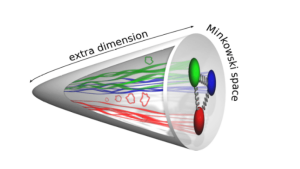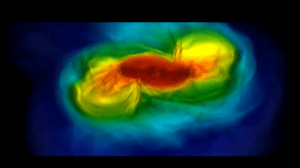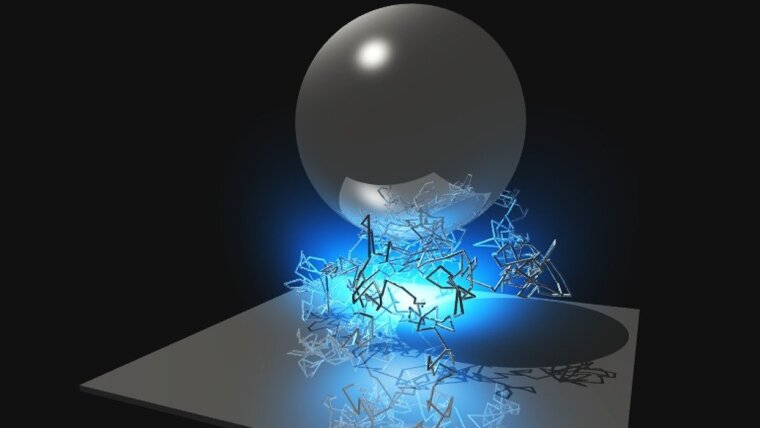
Specialise in the Theory of Quantum and Gravitation Systems
The specialisation in quantum and gravitational systems of the Faculty of Physics and Astronomy (PAF) at Friedrich-Schiller-Universität (FSU) Jena takes place mostly at the Institute of Theoretical Physics (TPI) via lectures, seminars and smaller projects. In this manner, you can get insights into the topics of our groups and how research of theoretical physics works, all while getting to know our researchers.
On this page, you get an overview over the three sub-specialisations with corresponding lectures we offer and an examplary study plan. A more detailed overview of the research groups can be found on the page of the TPI and their Master's Studies page.
The Contents of Study in the Specialisation Quantum and Gravitational Systems
The specialisation in the theory of quantum and gravity is structured via foundational and advanced lectures and seminars. The aim of this structure is to prepare you to do research in the areas of quantum theory, the theory of gravitation, the theory of quantum gravity, and provide you with an understanding of the methods of modern theoretical physics.
Gravitational waves
Image: pixabay.comTheory of Gravity
The focus of the sub-specialisation in gravity focuses on the analytical and numerical description of various gravitational systems. In particular, this encompasses descriptions of single cosmic objects like neutron stars and black holes, the propagation of gravitational waves, and the evolution of the entire universe (cosmology).
We prepare you for research in these fields by offering seminars and the following lectures:
- General Relativity
- Advanced General Relativity
- Relativistic Astrophysics
- Relativistic Physics (German)
- Cosmology
- Gravitational Waves
- Numerical Relativity
- Computational Fluid Dynamics
Quantum physics
Image: pixabay.comQuantum Field Theory
The centre of quantum field theory (QFT) in the specialisation is understanding the fundamental interactions of nature and their descriptions. In order to do so, we not only focus on field theoretic frameworks, but on the behaviour when transitioning different scales and at critical points—e.g. at phase transitions—, too.
An understanding of these topics and methods can be gained via the following lectures:
- Advanced Quantum Theory
- Quantum Field Theory
- Advanced Quantum Field Theory
- Gauge Theories
- Physics of the Standard Model
- String Theory
- Physics of Scales
- Introduction to AdS / CFT Dualities
- Physics of the Quantum Vacuum
Minkowski tube
Image: M. AmmonTheory of Quantum Gravity
The sub-specialisation in quantum gravity (QG) sits between gravity and QFT and tries to answer the question of how to model gravity as a quantum theory. In particular, we are confronted with essential questions regarding the physical assumptions and the mathematical structure of such theories and investigate them in different approaches to QG.
An overview over the research field and some approaches to QG can be obtained in the lectures below:
- Introduction to Quantum Gravity
- String Theory
- Introduction to AdS/CFT Dualities
Logo FNR2022
Image: BernuzziMathematical and Numerical Supplements
In parallel to the physics in our specialisation, we recommend attending lectures that provide the fundamental frameworks in numerics and mathematics we rely on in the lectures and research, even if they do not directly deepen your knowledge and understanding of physics. In particular, it is recommended to study advanced areas of mathematics and the implementation of physical scenarios in numerical simulations.
A selection of lectures available at PAF and other faculties of FSU are the following:
- Spectral Methods
- Symmetries in Physics
- Differential Geometry, Analysis on Manifolds
- Lie-Algebras, Lie-Groups
- Mathematical Methods of Quantum Mechanics
- C*-Algebras
- Parallel Computing
- Numerical Partial Differential Equations (Computational Physics)
- Machine Learning (Computational Physics)
Recommended Study Plan
The recommended study plan refers to the sub-specialisations in gravity (GR) or quantum field theory (QFT) and is intended for immatriculation in the winter term. For a specialisation with focus on quantum gravity, lectures of both GR and QFT can be elected, but with more variance regarding your personal interests.
| Compulsory | GR | QFT | Electives | |
| 1st term | Advanced Quantum Theory (8) Research Lab (4) |
General Relavity* (GR) (8) | Quantum Field Theory* (QFT) (8) |
Comp. Physics (4) |
| 2nd term | Oberseminar (4) Research Lab (4) |
Grav. Waves (4) Specialisation GR |
Advanced QFT (8) Specialisation QFT |
Math. Methods of Physics, Differential Geometry |
| 3rd term | Project Planning (30) | Specialisation GR | Specialisation QFT | Specialisation Math / Num. |
| 4th term | Master Thesis (30) | Specialisation GR | Specialisation QFT | Specialisation Math. / Num. |
Some remarks:
- The schedule assumes the start of your studies during the winter term.
- The specialisation in the first and second term take place annually. (ECTS in parantheses)
- The lectures marked with * are fundamental for the following lectures and should be attended.
- Advanced Quantum Theory is not required for QFT. In particular, QFT can be attended in the sixth semester of the Bachelor's studies at PAF.
- Some elective modules may be contained in the selection of specialisation lectures and only contribute to the required credits of the the specialisation.
Master Theses in the Specialisation
At the end of your Master's studies, you will produce scientific work in the context of your Master's thesis. In our specialisation, you can work on different topics in the areas of quantum theory, the theory of gravitation and theories of quantum gravity.
In the following, we present to you a small selection of excellent Master's theses with various topics.
-
Exploring causal structures in 2+1 dimensional Lorentzian Regge-Calculus, Björn Borgolte
Learn moreExternal linkWhy did you choose your topic and what is the most interesting thing you learned while working on your thesis?
I chose Quantum Gravity because I always wanted to study the bleeding edge of theoretical physics. What drew me to the topic was a fundamental open question beyond mere calculations, promising me the opportunity to develop new methods and interpretations on my own. To me, the most interesting part was how much physics there is left to discover; even in just one year we had described something previously unknown. How much more is waiting for us just around the next mathematical corner?
-
Renormalization group flow of QCD in 1+1 Dimensions, Eric Oevermann
Learn moreExternal linkWhy did you choose your topic and what is the most interesting thing you learned while working on your thesis?
I find QCD an exciting area of research because, despite being a well-established part of the Standard Model of particle physics, it still poses many open and poorly understood questions. For instance, how do quarks and gluons bind to form hadrons? What does the full phase diagram of QCD look like? In my thesis, I explored a powerful non-perturbative computational technique that enables a direct connection between the microscopic dynamics of quarks and gluons and the macroscopic phenomena observed in experiments. This technique can be applied to other areas of physics and I learned how challenging but rich non-perturbative phenomena can be.
